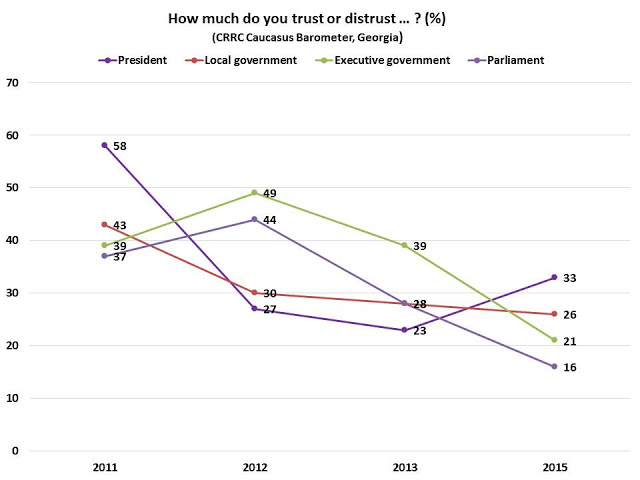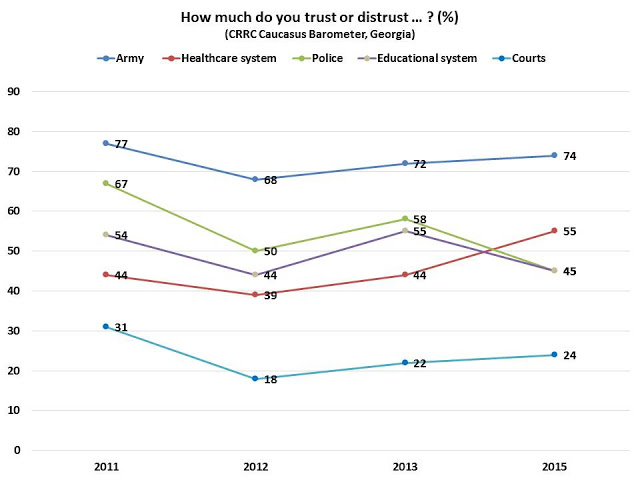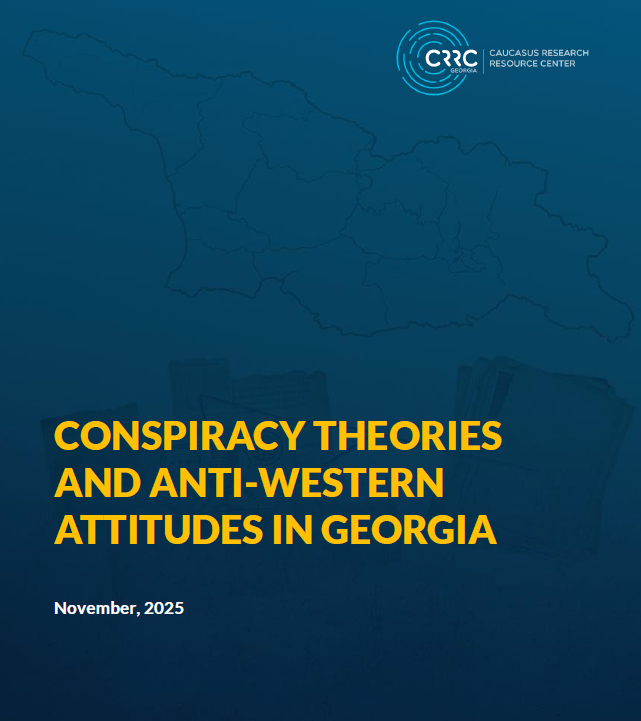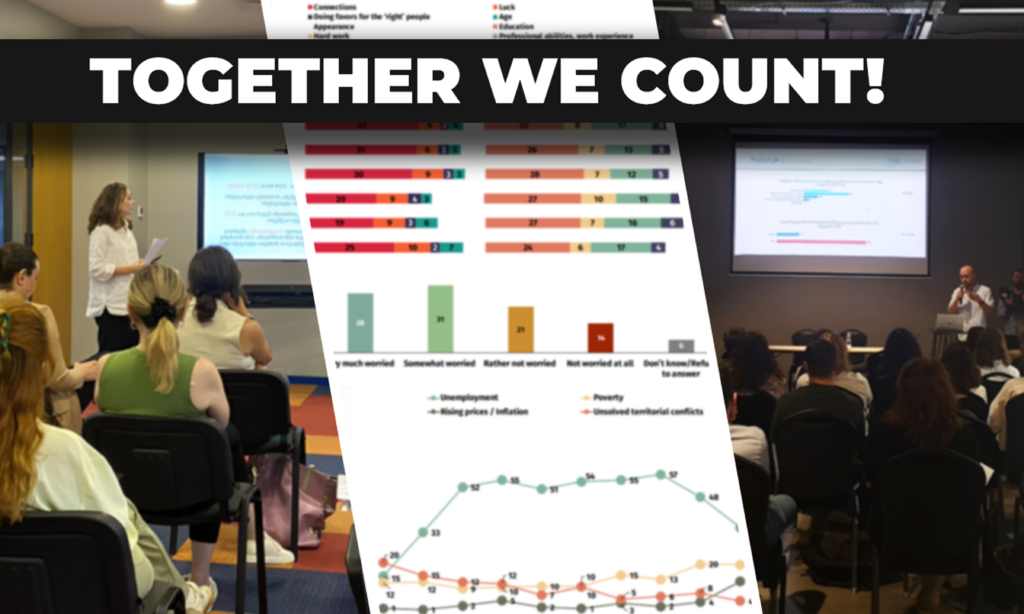The population’s level of trust in government and other institutions can be affected by many factors, and of course, may change over time. This blog post looks at how reported levels of trust in the president, local government, executive government, parliament, the army, healthcare system, police, educational system and courts have changed over the years in Georgia, using CRRC’s Caucasus Barometer (CB) survey data from 2011 to 2015 and NDI-CRRC polls.
The level of trust in most political institutions has declined in Georgia since 2012. One of the largest declines was in the level of trust in executive government, which dropped from 49% in 2012 to 21% in 2015. Reported trust in local government has also declined since 2011. There was a large drop in trust in the president since 2011, however, after 2013, it has increased by 10 percentage points. Since 2014, NDI-CRRC polls have shown decreasing support for the Georgian Dream (GD) coalition, which has a majority of seats in the parliament and forms the government. President Giorgi Margvelashvili, on the other hand, is quite distanced from the ruling party, is often criticized by the GD coalition and has made a number of critical remarks towards GD and its leaders. This may explain the discrepancy between rising trust in the president and declining trust in the executive government and the parliament between 2013 and 2015, although more research is needed.
While there has been a consistent drop in trust in most political institutions since 2011, there is a similar albeit less dramatic decline in trust in the police and educational system. The healthcare system is an exception – trust in this system has increased by 16 percentage points since 2012. This may be in response to the introduction of the State Universal Healthcare Program in 2013. Notably, the performance of the Ministry of Labor, Healthcare, and Social Affairs is ranked among the highest of all ministries according to NDI polls. The level of trust in the army is consistently high. Trust in courts has slightly increased since 2012, although it has not returned to its 2011 levels.
Since 2012, the levels of trust in local and executive government, parliament, the educational system and the police in Georgia have declined. Trust in the president and the healthcare system, on the other hand, have increased. Trust in the army remains high.
To explore data on trust in institutions in the South Caucasus further, take a look at our Online Data Analysis tool.












